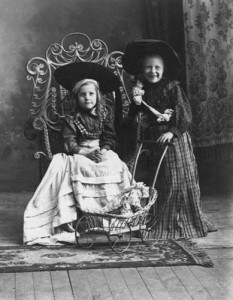As a result of the war with Germany, the Canadian Government prohibited any importation of goods from Germany into the country. This resulted in a sudden shift in the Canadian economy since Canada’s trade with Germany in the past included millions of dollars worth of imports, including printing, lithography, drugs, calendars, jewelry, silks, ornaments, toys and other novelties. Stores in the Waterloo Region had been waiting for shipments from Germany that would now never arrive. This issue was amplified when all mail and correspondence was halted with Germany, Austria-Hungary and Luxembourg.
The loss of these goods would mean that Canadian manufacturers and merchants needed to start producing these goods themselves and fill the holes left in the market. Many manufacturers were already making many of the goods that were normally imported from Germany, but the German goods proved popular because of their lower price. Despite the fact that Canadian manufacturers would be able to provide alternatives, drug stores worried that they would run out of certain drugs, while customers worried about the availability of Christmas novelties and jewelry that were normally imported from Germany and Austria.
(“Cannot Buy German Goods,” Berlin Daily-Telegraph, 11 August 1914; “Cannot buy German Goods,” Waterloo Chronicle-Telegraph, 13 August 1914 “How Berlin is Effected by the War,” Berlin Daily-Telegraph, 11 August 1914; “How Twin City is Effected by the War,” Waterloo Chronicle-Telegraph, 13 August 1914; “Canada’s Trade with Germany at an End,” Elmira Signet, 13 August 1914; “No Mail For Germany, Austria or Luxemerg,” Berlin Daily Telegraph, 14 August 1914; Visual: http://ao.minisisinc.com/WEBIMAGES/I0014287.JPG)
Two young girls who pose with a doll and carriage. With trade with Germany traded, families in Waterloo Region and across Canada wondered where they would get toys for the 1914 Christmas.
